Matching numbers Normal Numbers Worksheets for 5-Year-Olds
5 filtered results
-
From - To
Discover engaging "Matching Numbers Normal Numbers Worksheets" designed specifically for 5-year-olds to enhance their number recognition skills. These worksheets provide a fun and interactive way for young learners to match numbers with corresponding visuals, reinforcing their understanding of numerical concepts. Each activity promotes critical thinking and fosters early math skills through colorful and age-appropriate designs. Perfect for home or classroom use, these worksheets are ideal for developing foundational math skills while keeping children entertained. Encourage your little ones to explore the world of numbers confidently with our carefully crafted resources that make learning enjoyable and effective!
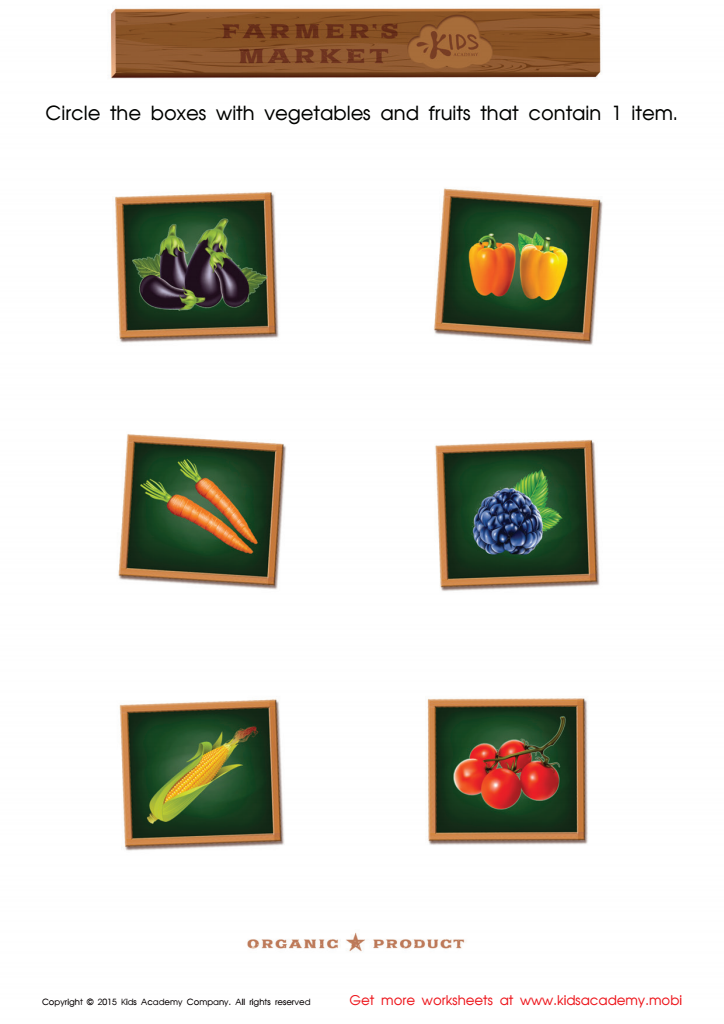

Count and Match Boxes with Vegetables
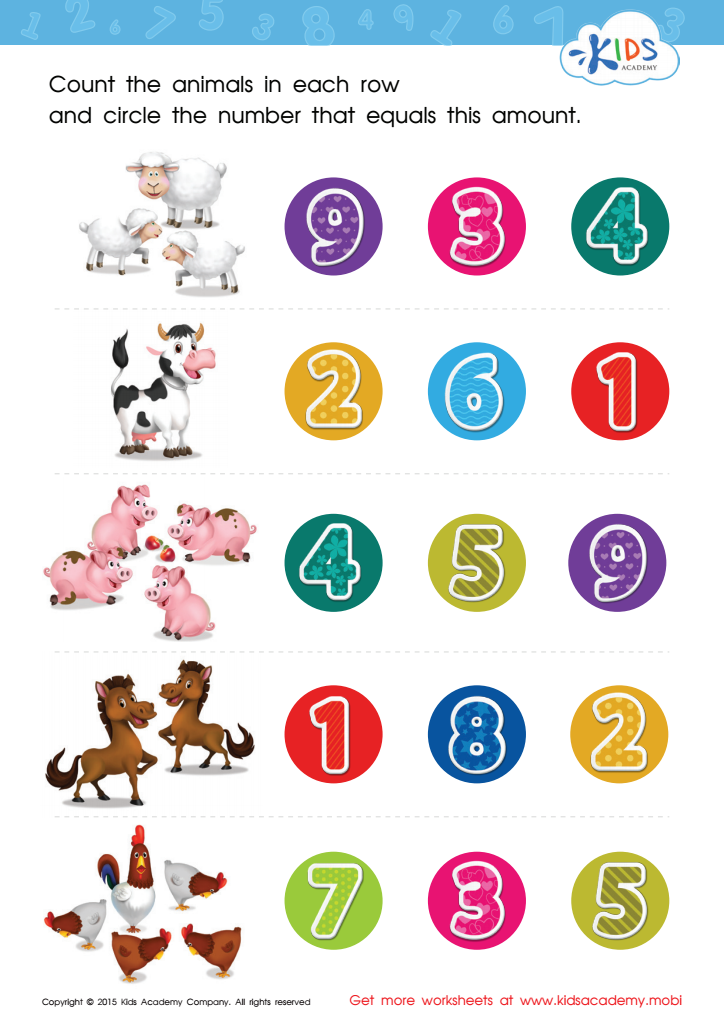

Count and Match 1 – 5 Math Worksheet
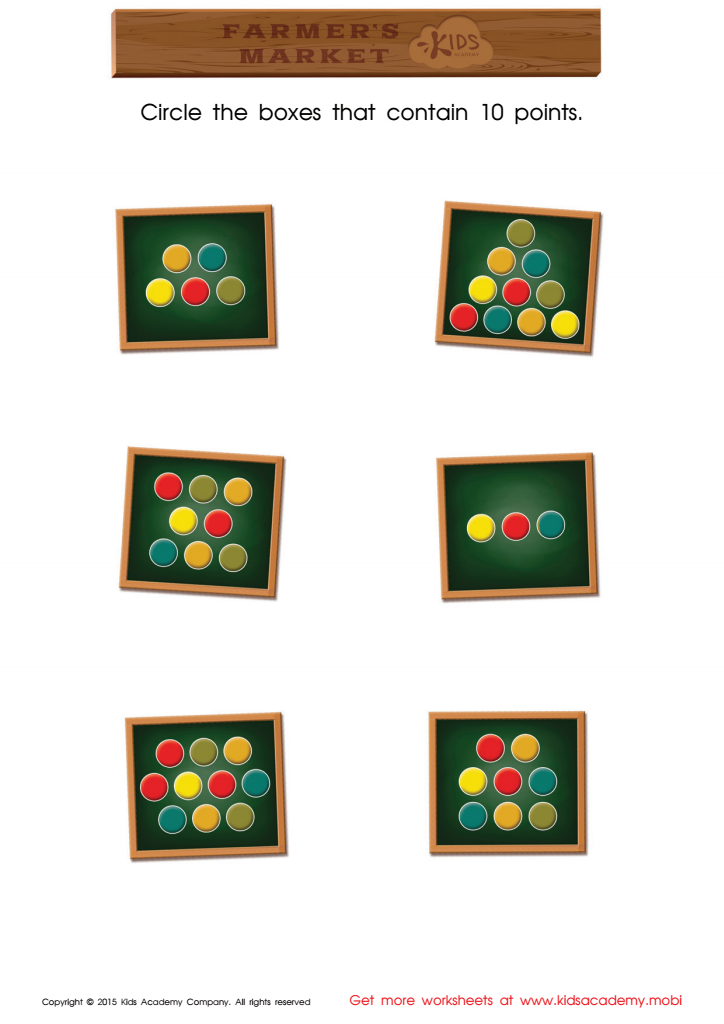

Count and Match Points 10 Math Worksheet
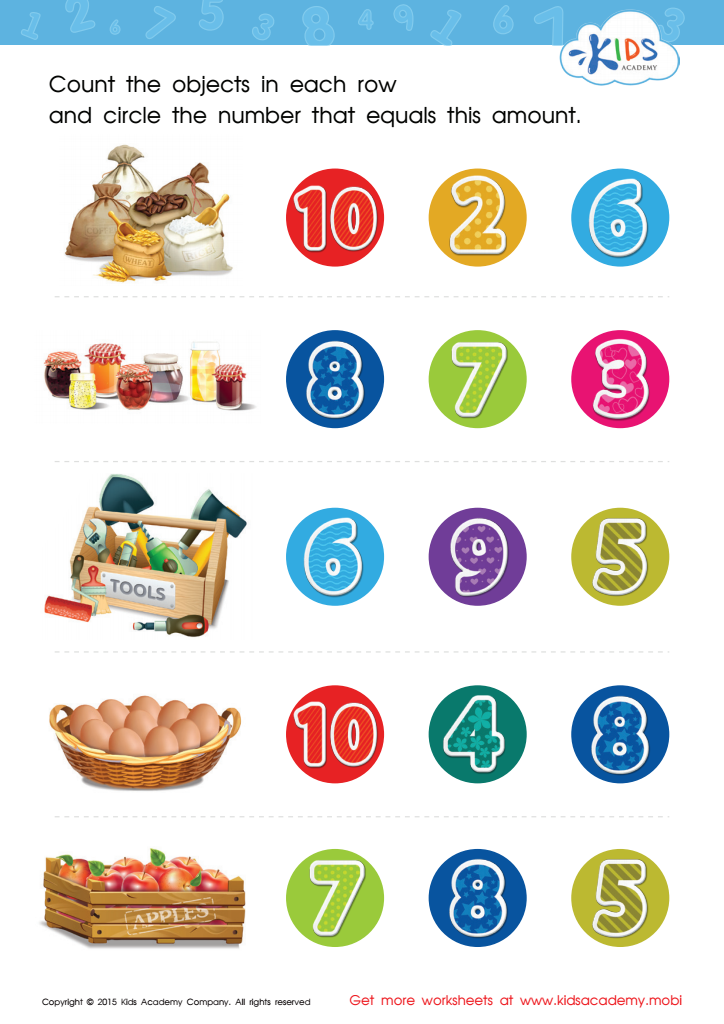

Count and Match 6 – 10 Math Worksheet
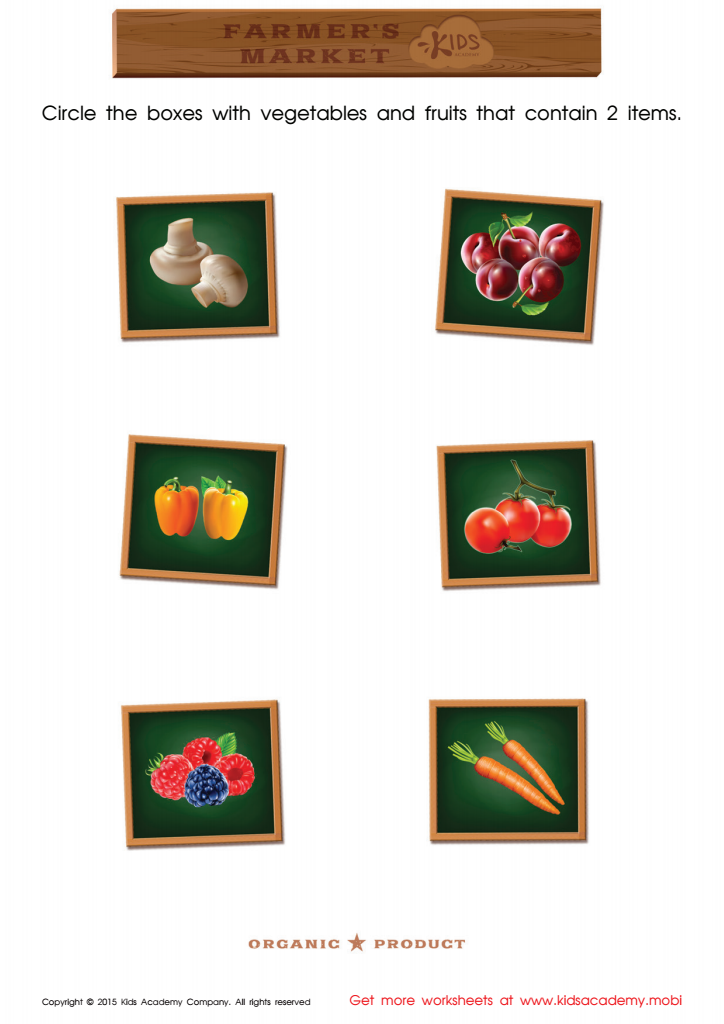

Count and Match Vegetables and Points Math Worksheet
Understanding matching numbers and normal numbers is crucial for the development of mathematical skills in 5-year-olds. At this age, children are at a pivotal stage of cognitive and language development, where foundational skills are formed. When parents and teachers foster these concepts, they aid in children's ability to recognize and understand numbers in their environment, which is essential for seamless everyday interactions.
Matching numbers involves recognizing identical groupings, teaching children how to associate quantities with their numerical representations. This strengthens cognitive processing and recognizes patterns—skills that are fundamental in later mathematical learning. Normal numbers, or understanding the sequence and order of numbers, builds a strong basis for counting and basic arithmetic operations.
When caregivers engage with children on these topics, they not only enhance numerical literacy but also promote critical thinking, problem-solving, and reasoning. Encouraging these skills through fun activities, such as number matching games or everyday counting scenarios, makes learning interactive and enjoyable. Ultimately, nurturing numerical skills in early childhood sets the stage for future academic success in mathematics and instills a lifelong appreciation for learning.
 Assign to My Students
Assign to My Students





















